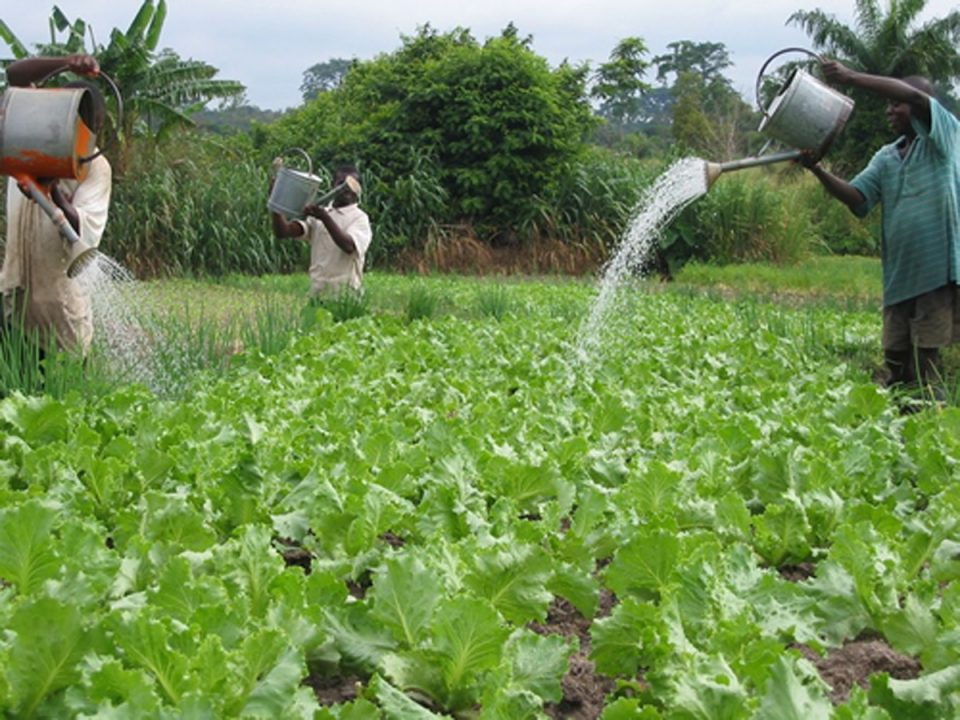Nigeria’s imports of agricultural goods between January 2017 and March 2021 surpassed its exports in the period by N3.9tn.
The total value of trade in agricultural goods in the period under review was N6.2tn, comprising N5.04tn exports and while imports constituted N1.14tn, leading to a trade deficit of N3.9tn within the review period.
The total value of trade in agricultural goods in the period under review was N6.2tn, comprising N5.04tn imports and N1.14tn exports, with a trade deficit of N3.9tn.
These figures were arrived at after an analysis of foreign trade data obtained from the website of the National Bureau of Statistics.
In 2017, Nigeria generated N125.88bn from the export of agricultural goods and spent N891.87bn on imports.
Nigeria’s agriculture exports in 2017 comprised largely sesamum seeds, cashew nuts, soya beans, and ginger, which were exported to China, India, Russia and Greece, among others.
The import bill was dominated by durum wheat seeds, maize seed, and crude palm oil, which were imported from the United States, Canada, Australia, and Ghana.
In 2018, the country’s agriculture imports stood at N855.09bn, while goods worth N305.25bn were exported.
Durum wheat, not in seeds, was the major driver of agriculture imports during the year, followed by mackerel, herrings, and Faroe Island.
Canada, Russia, United States, Japan, and Chile were some of the countries Nigeria imported from, while Vietnam, Netherlands, Italy and Indonesia were the country’s largest agriculture exports destinations.
Goods exported to these countries included fermented Nigerian cocoa beans, frozen shrimps, and prawns.
In 2019, Nigeria’s agricultural imports rose by 12.18 per cent from the previous year to N959.28bn, while exports fell to N269.9bn, resulted in a trade deficit of N689.38bn.
Similar to the preceding year, Nigeria imported goods including durum wheat and mackerel from countries such as Japan and Netherlands, while sesamum seeds and fermented Nigerian cocoa beans were exported to Asia and Europe.
In 2020, agriculture imports and exports maintained an upward trajectory with import bill jumping to N1.7tn, while exports rose to N320.7bn.
The agricultural trade deficit was highest in 2020 with a deficit of N1.4tn.
In the first quarter of the year, Nigeria spent N261.38bn importing agricultural goods from the United States, Latvia, Canada and Argentina. In the last quarter of 2020, N532.39bn was spent on importing durum wheat, palm oil, and herring from Asia and Europe.
During the year, Asia, Europe, and Africa were the top agriculture exports destinations. A total of N186.16bn worth of agricultural goods were exported to Asian countries; N98.6bn to European countries; and N14.98bn to African countries.
In the first three months of 2021, the total value of agricultural trade stood at N757.4bn, consisting of N127.2bn exports and N630.2bn imports.
The Founder and Managing Director of Cowry Asset Management Limited, Johnson Chukwu, told one of our correspondents that the country had yet to start producing export-worthy agricultural products.
He said, “In the first place, most of Nigeria’s agriculture exports are goods like sesamum seeds while the major agricultural production in the country are tubers, seeds and grains. Most of these goods are for local consumption, and they don’t have a huge international market, other than Nigerians in diaspora.
“You don’t expect Nigeria to export cassava in its raw format, but when some of them are processed, we can export. But we are currently not meeting local demands. So the major thing is that we don’t produce so much – that is, sufficient quantity of exportable agricultural commodities. Also, we are not yet food-sufficient as a country; so, as long as there is food insufficiency, importation of agricultural items will be higher than exportation.”
He stressed the need for the government to ensure food sufficiency in the country and help farmers boost their capabilities.
“Eliminating the trade deficit is only possible when we become food-sufficient. Also, the Federal Government must help farmers to improve their products handling capabilities, which means better storage, transportation and preservation. If you can’t preserve your products, many of them will be destroyed, therefore limiting the opportunity to export them,” Chukwu added.
The Vice President at Nigeria Agribusiness Group, Emmanuel Ijewere, warned about the possible consequences of the trade deficit in agricultural products.
He said, “This deficit creates unemployment, increases the level of poverty, and hampers infrastructural development. Our future is being compromised as the younger generation is being told that there is guaranteed future.
“Therefore, as a means of self-preservation, these young ones will be forced to carry arms if the current situation lingers.”
He advised the government to take proactive steps to close the deficit gap.
Ijewere said, “First and foremost, the Federal Government should reorient itself to stop talking without taking actions. It is clear to everybody that Nigeria‘s future is not in oil but in agriculture. Export in Nigeria is being treated with ignominy; the entire process of exporting agricultural products is cumbersome and rife with inefficiencies that discourage exports.
“Thus, this is the time for the government to adopt a better attitude towards agriculture and create an enabling environment that will encourage local producers to export.”




